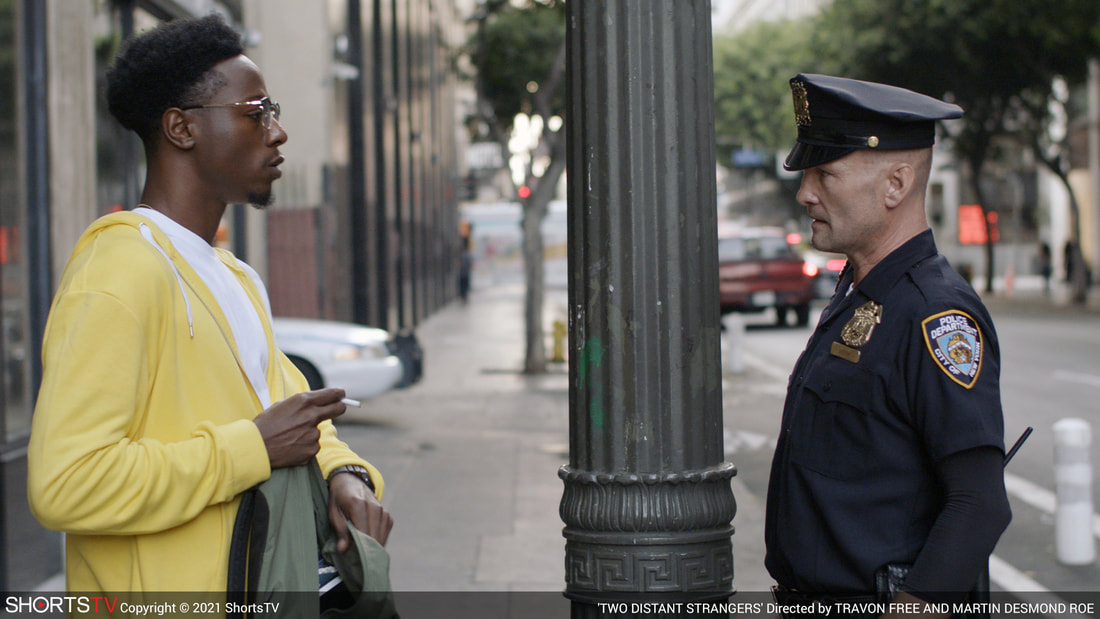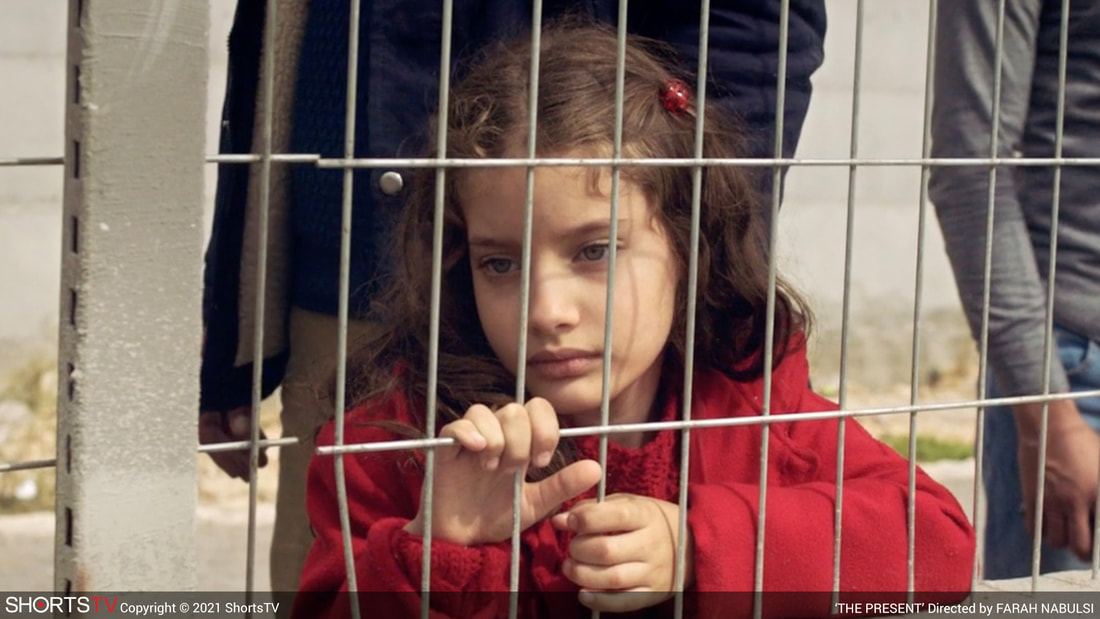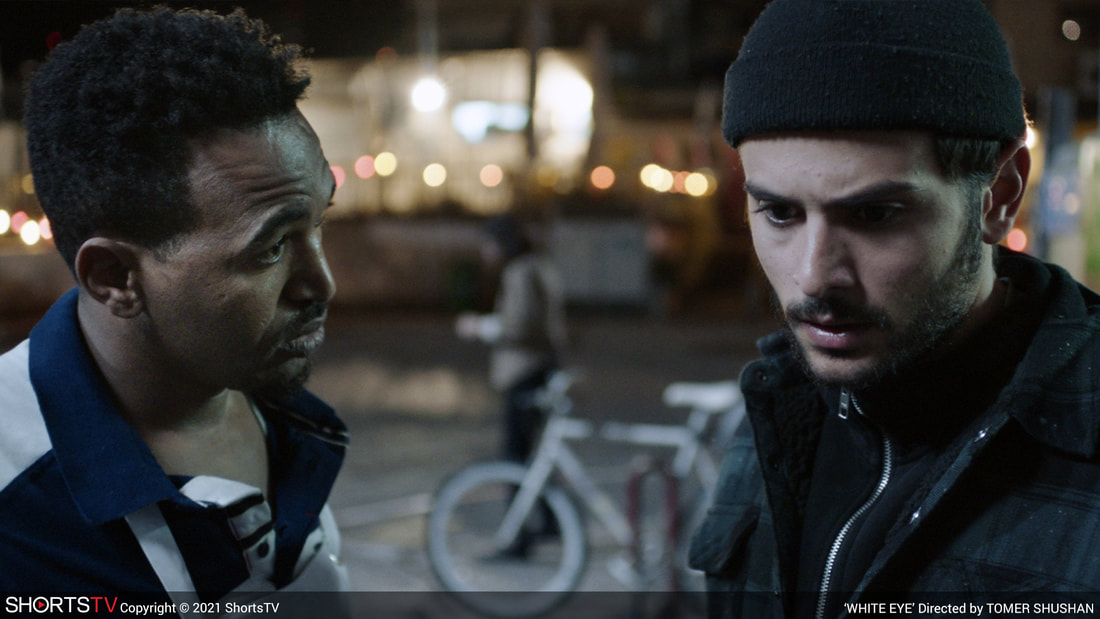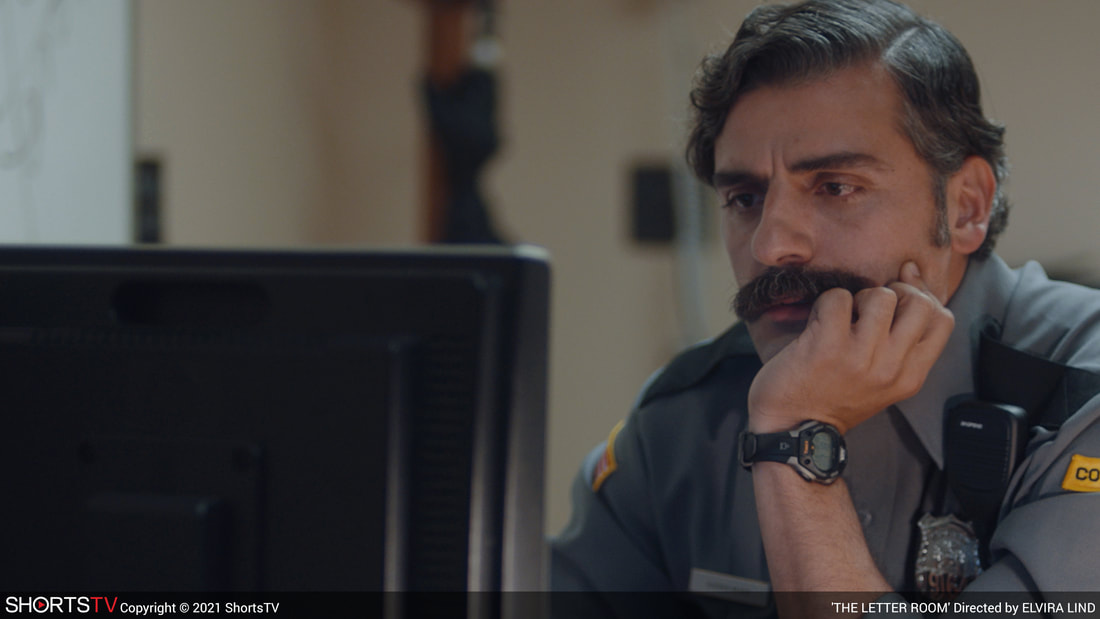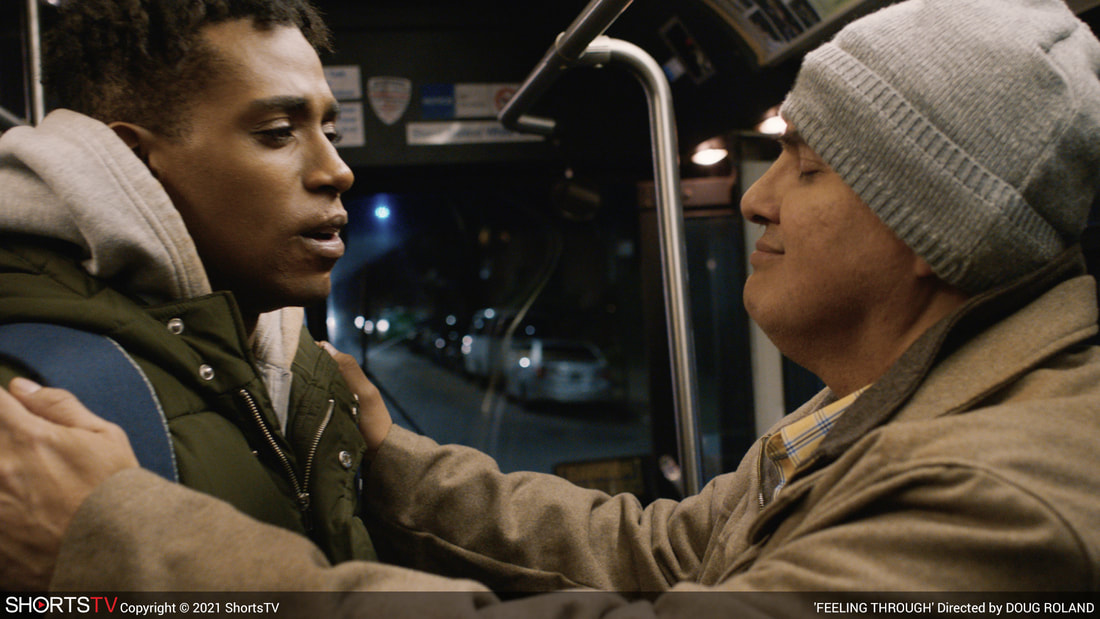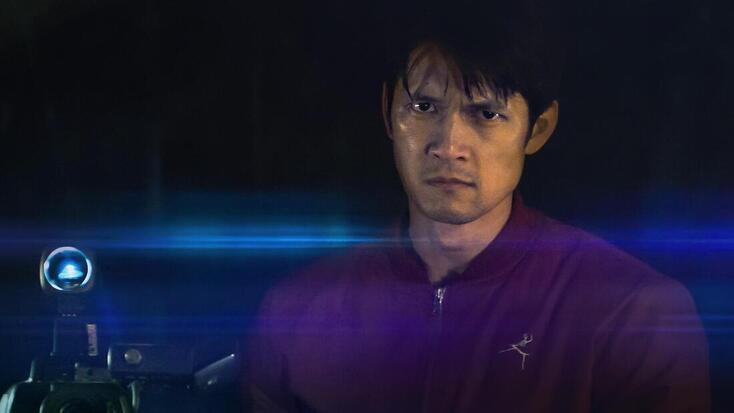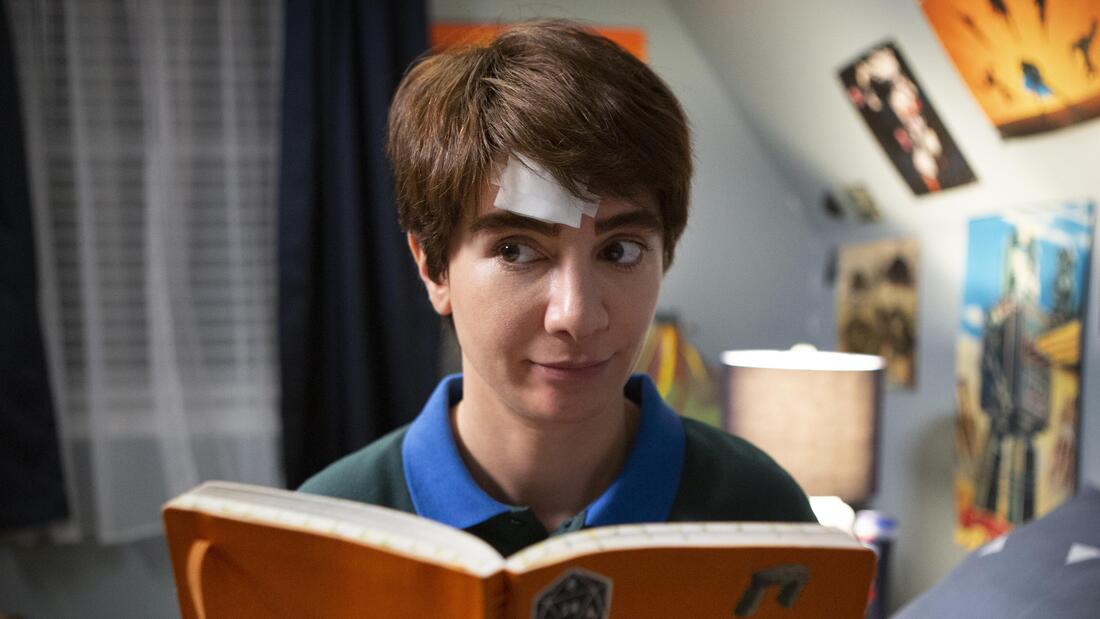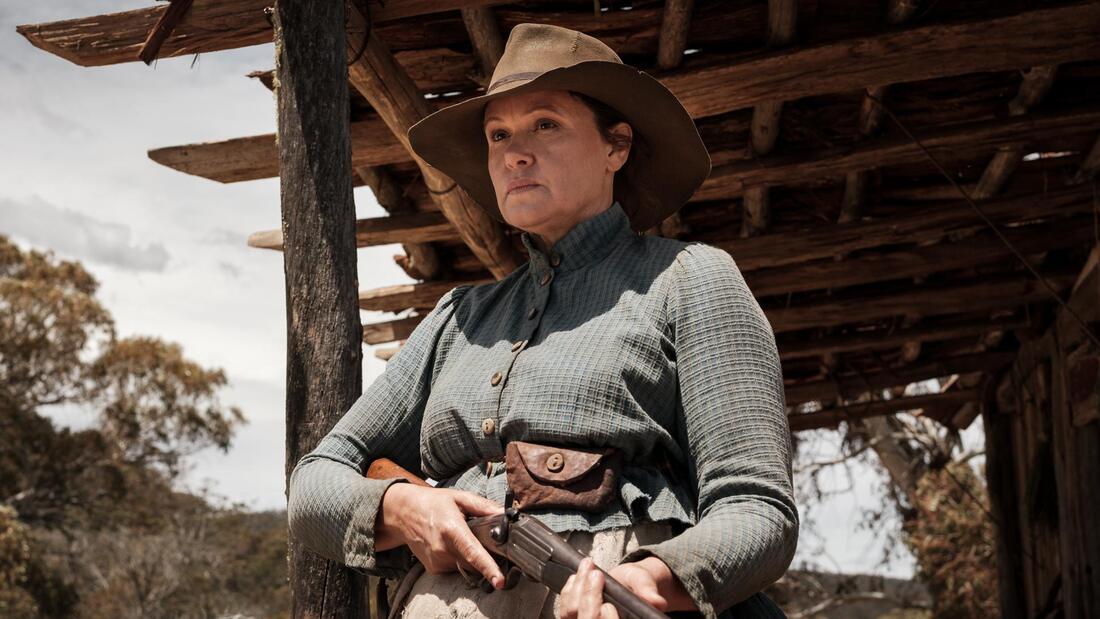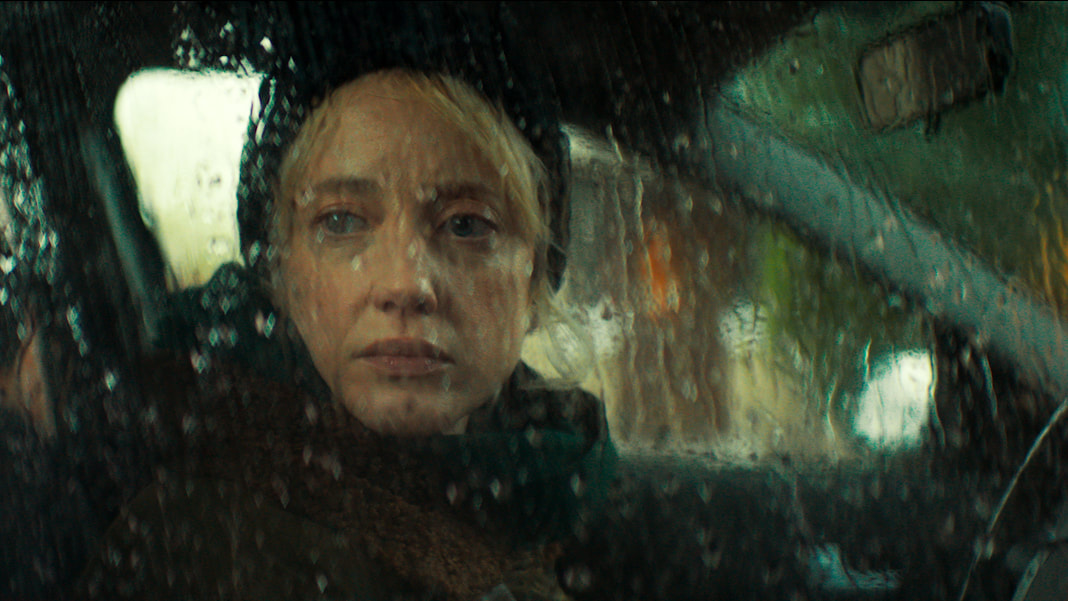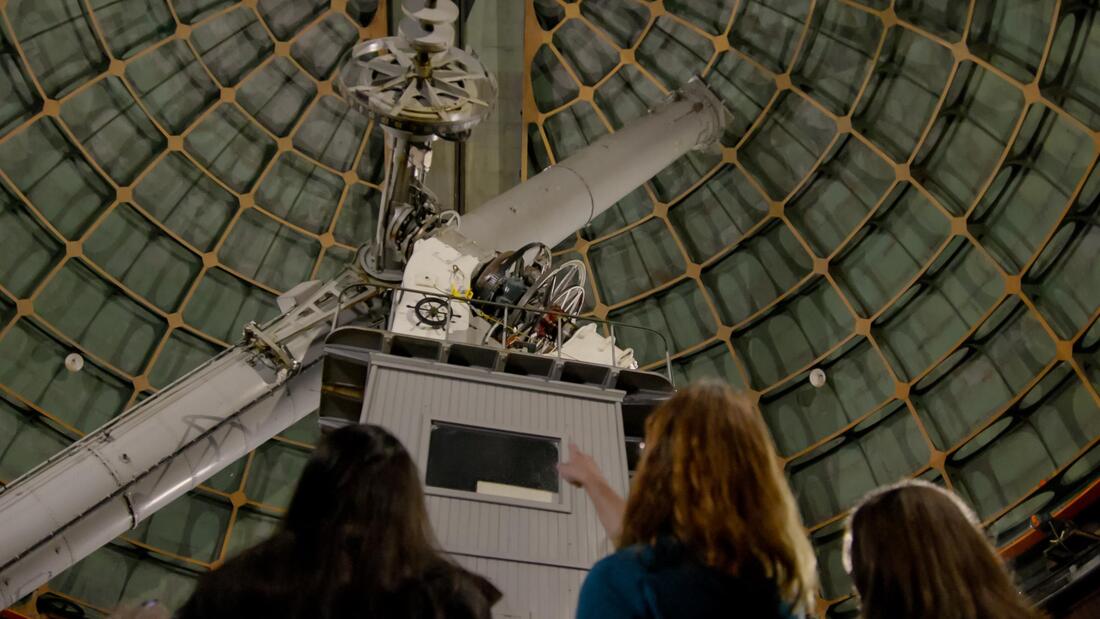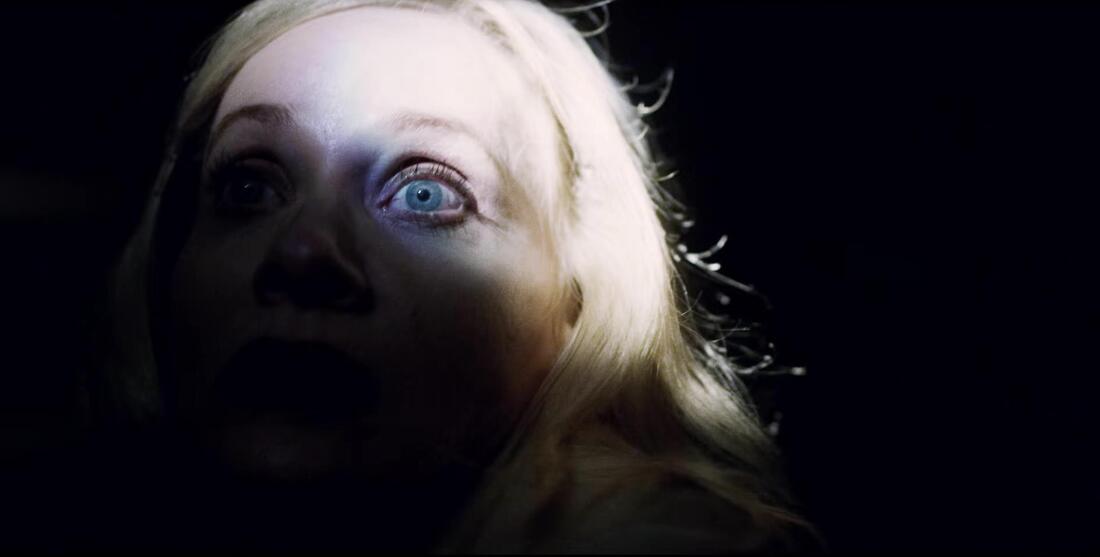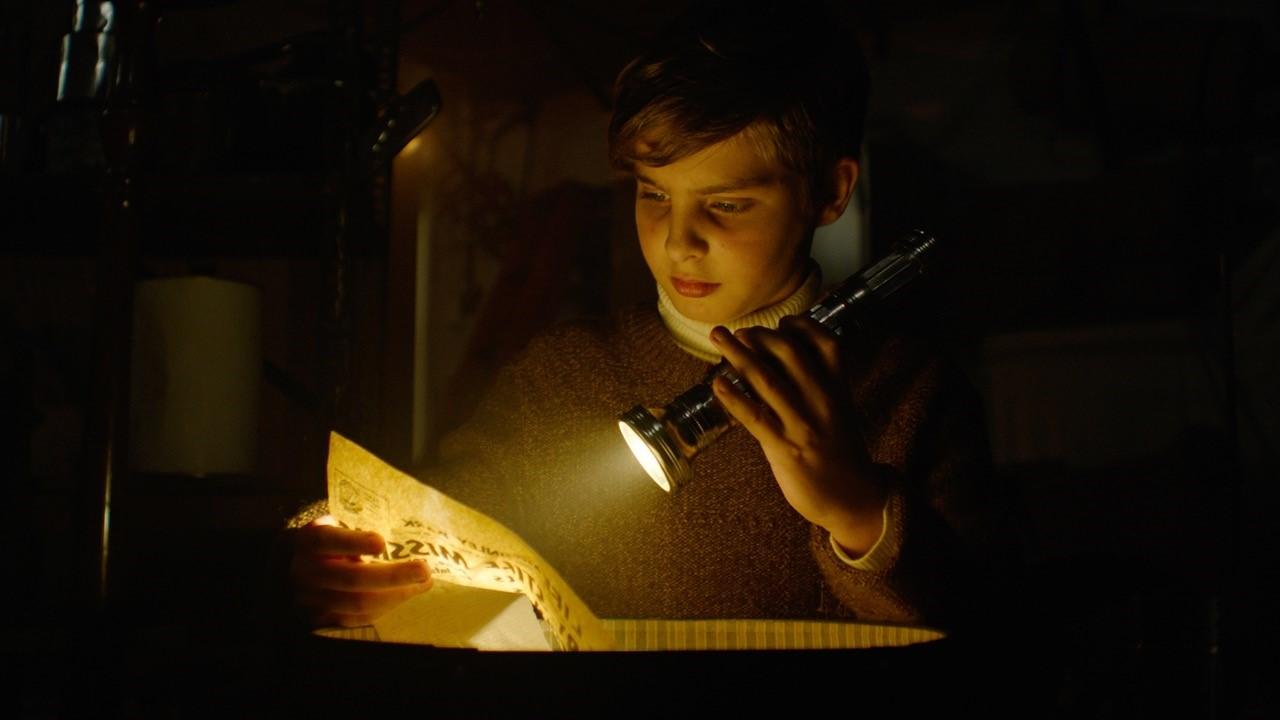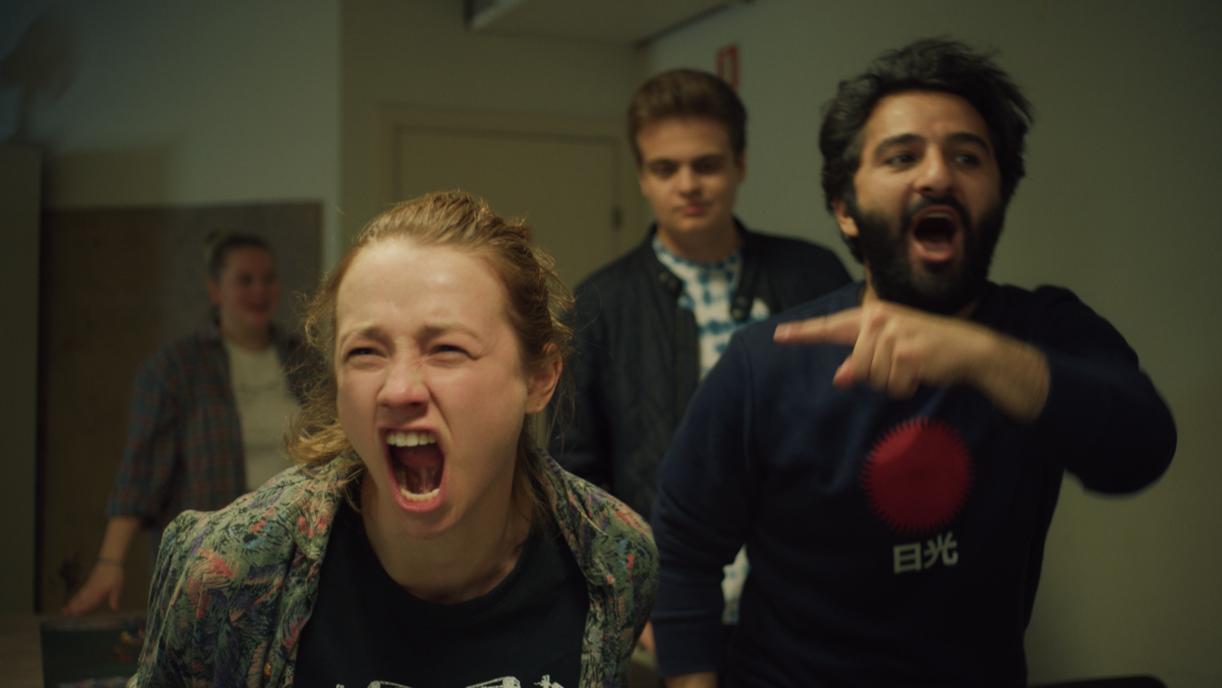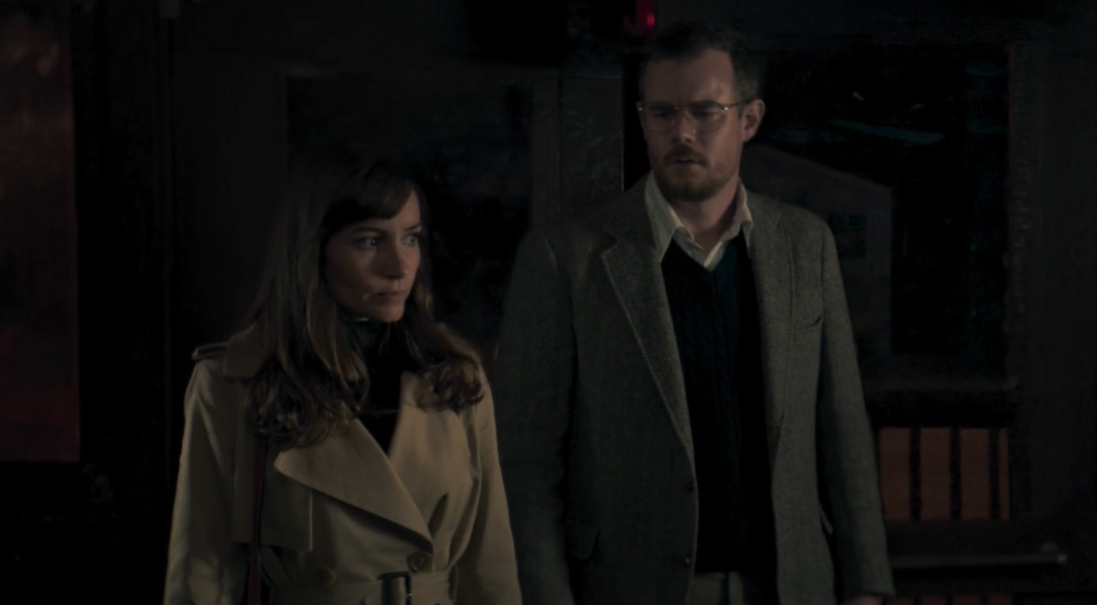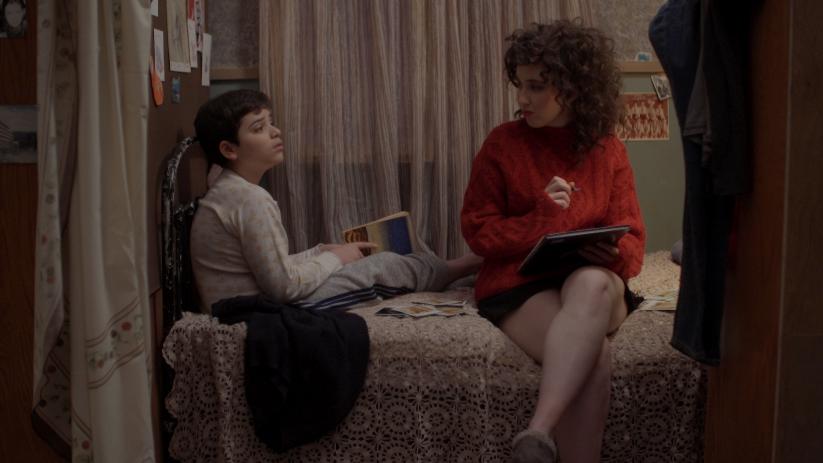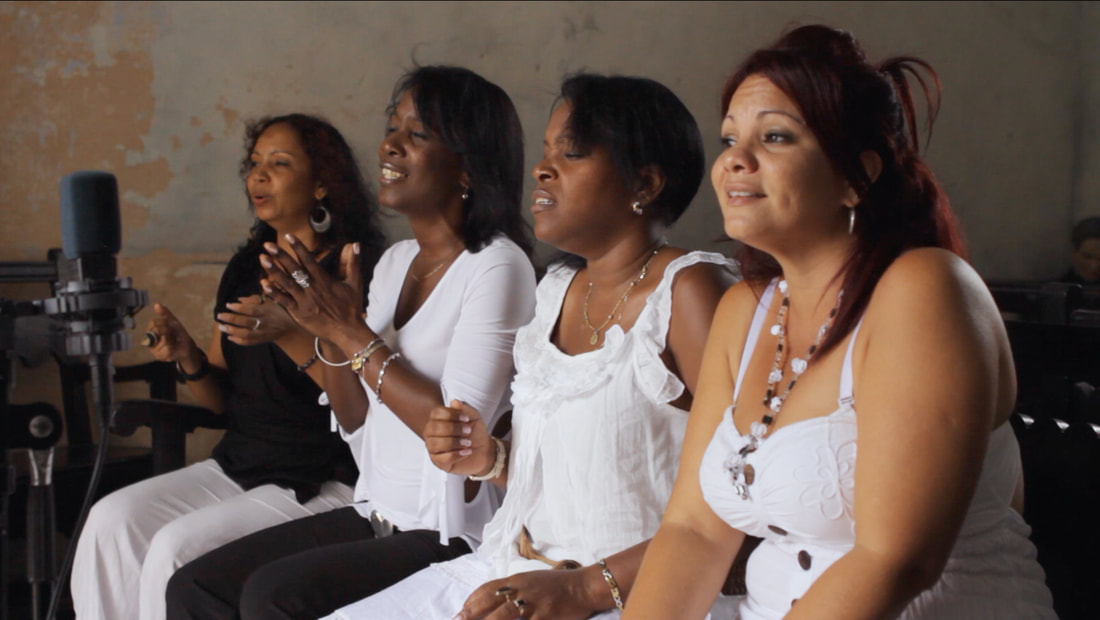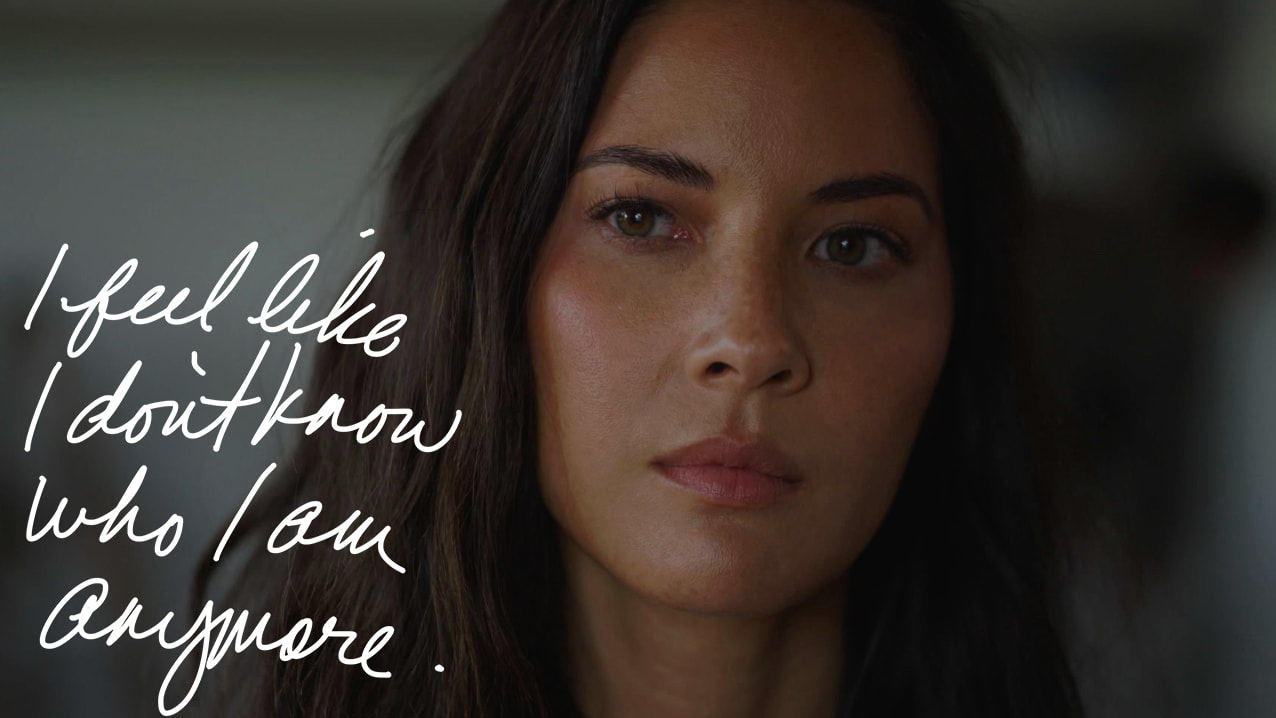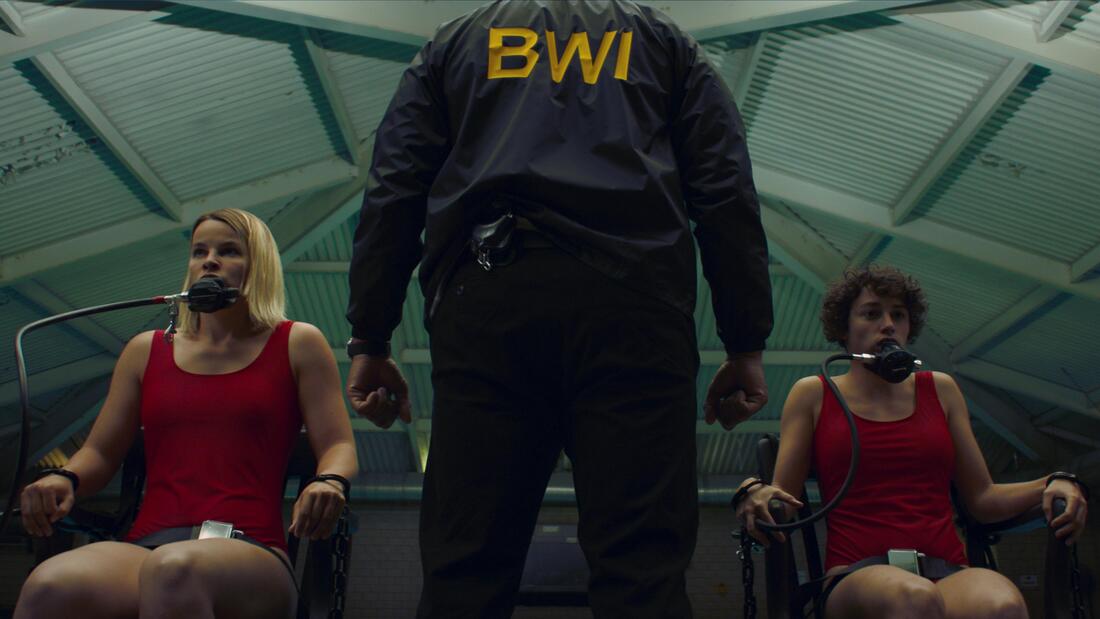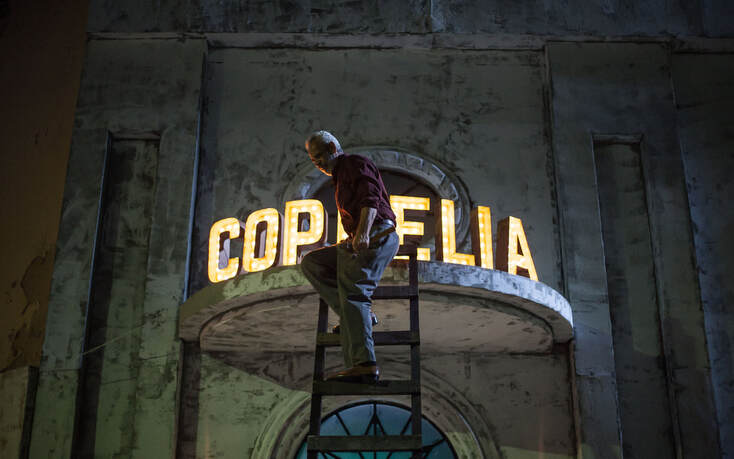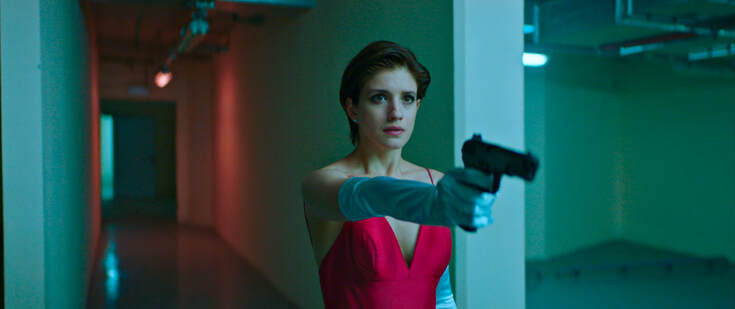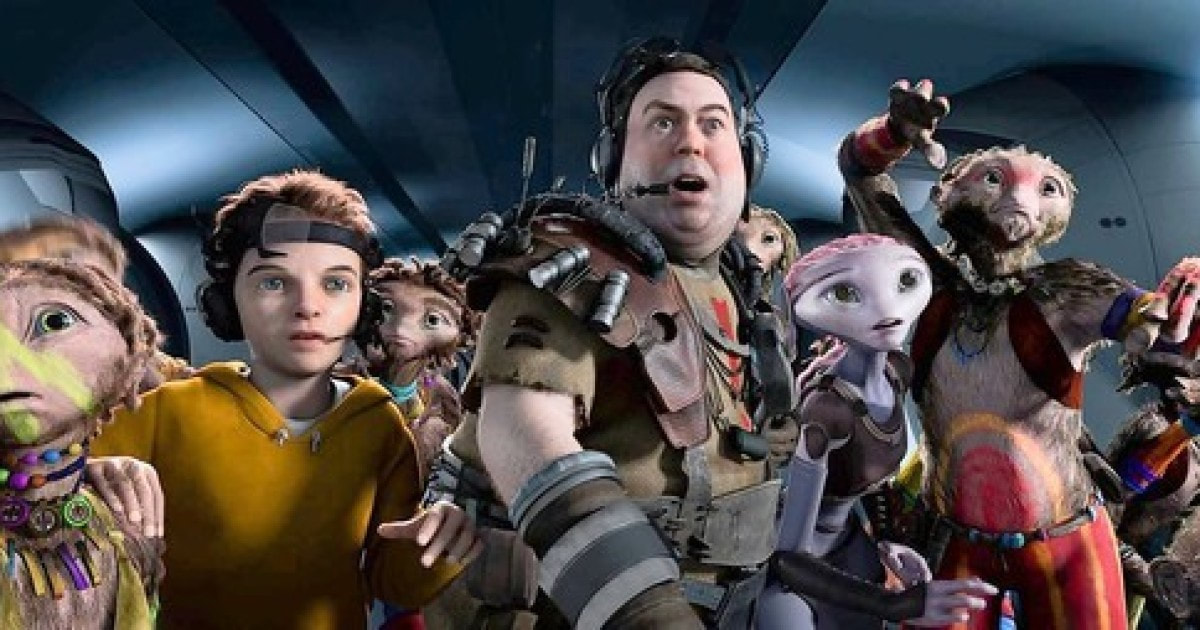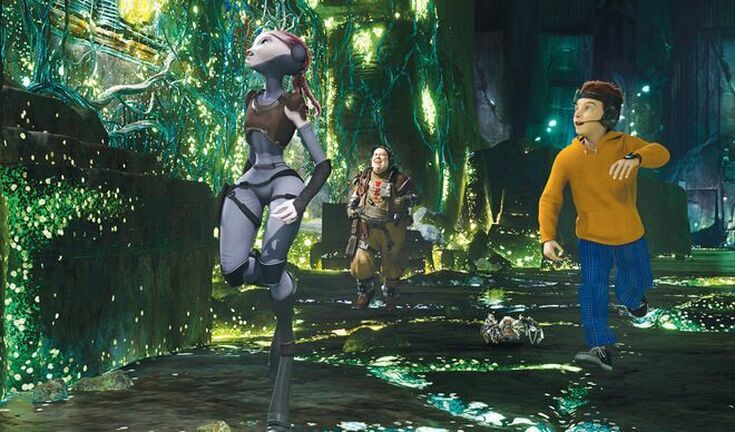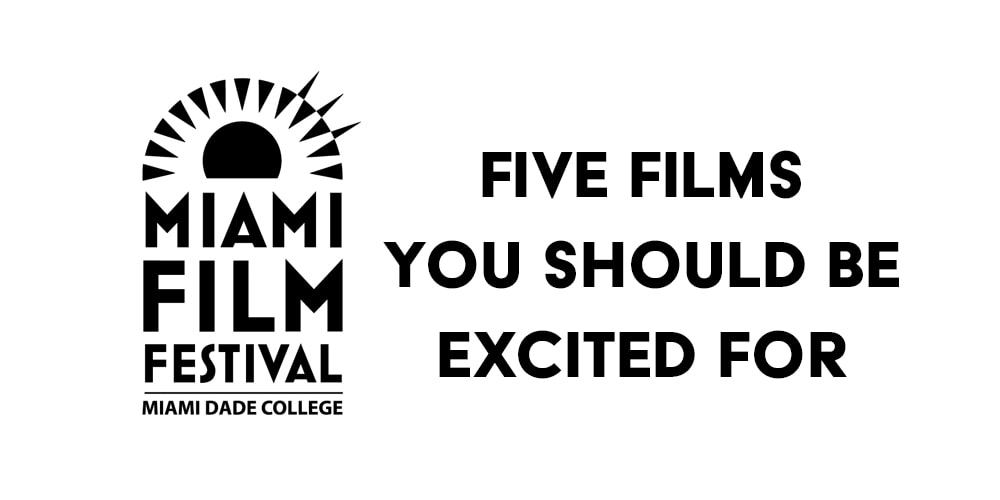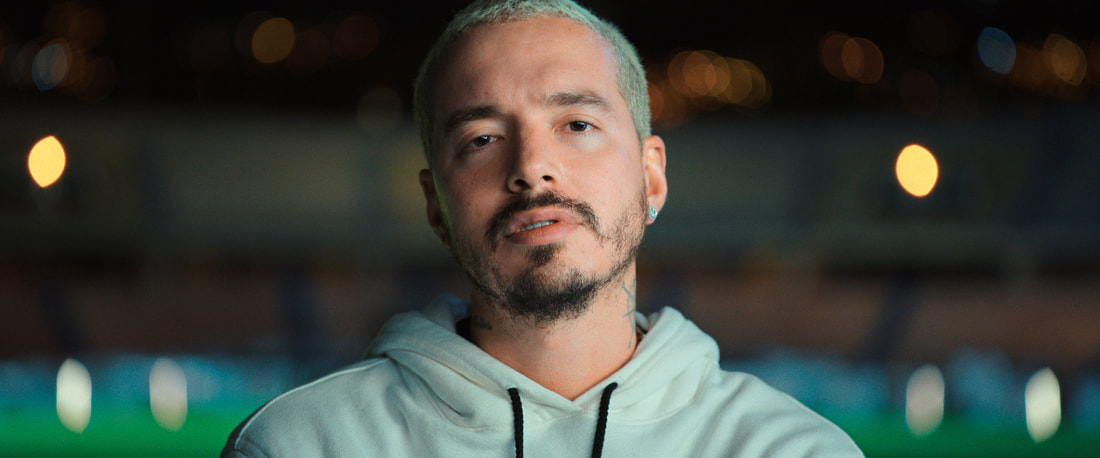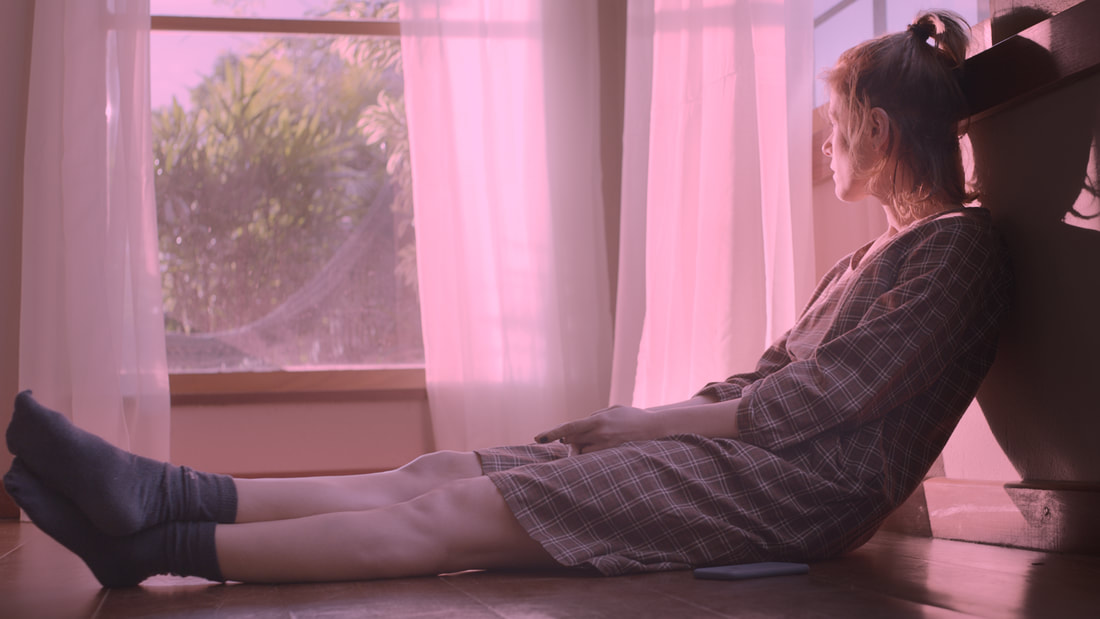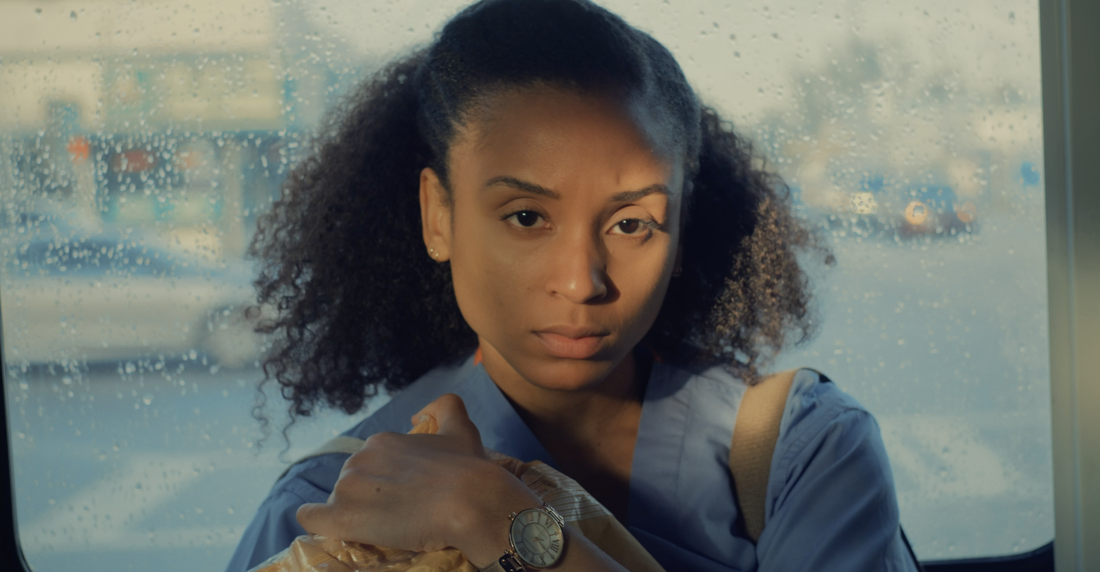|
By Sean Boelman
Every year, ShortsTV releases the Oscar-nominated short films in theaters, giving audiences the opportunity to see them before the ceremony and pick their favorites for the big night. This year’s crop of live action short films is interesting, with a focus on timely and topical films. Below is our personal ranking of the films.
5. Two Distant Strangers
Although it deals with some very important subject matter, Two Distant Strangers is undeniably the weakest film in the bunch. Taking a Groundhog Day approach to police brutality, the film follows a young Black man who finds himself reliving the same deadly encounter over and over again. It’s a well-intentioned short, but the somewhat exploitative nature of the execution prevents it from ever resonating as it should. Although it is nice to see the Academy recognizing the necessity to talk about this topic, there are definitely better ways that this issue can be approached in film.
4. The Present
There is always at least one short that is absolutely heartbreaking, and this year, it is The Present. Thankfully, the film mostly treads the line between emotional and tear-jerking quite well, but by the end, it ends up feeling like altogether too much. A majority of the film is spent building to a climax that, while effective, is also very to-the-point. It would have been nice to see this short go deeper into some of its political implications.
3. White Eye
The Israeli film White Eye has the most wasted potential of the bunch of short films. It’s a well-made film with a compelling message, but like too many political shorts, it ends up feeling rather one-note. There are some interesting things happening in the character development, but the conflict feels a little bit too on-the-nose for it to be a slam dunk. The highlight of the film is undeniably a layered performance by lead actor Daniel Gad, but this is the type of short film that doesn’t feel like a fully cohesive whole.
2. The Letter Room
The Letter Room has an immediate advantage in the category, and that is the fact that it has a big star as the lead in Oscar Isaac. However, even though this is the film that will probably catch viewers’ (and voters’) immediate attention most easily, it is also probably the least likely to stick with viewers. Compared to the other four films in the category, what it has to say is less important. It is also the longest of the five films, and it is not paced well enough to accommodate.
1. Feeling Through
The clear standout in this year’s batch is Feeling Through, an uplifting film about a disadvantaged teen befriending a deafblind man. It’s a bit melodramatic, but it’s also undeniably sweet and moving. Great performances by Steven Prescod and Robert Tarango ground the film despite its occasionally maudlin elements, and writer-director Doug Roland’s empathetic hand is much welcome. It won’t be hard to get people behind this message of inclusivity, so don’t be surprised to see this one take home the statue come Oscar night.
The 2021 Oscar Nominated Live Action Short Films hit theaters and virtual cinemas on April 2.
0 Comments
By Sean Boelman
After being forced to take a year off due to the coronavirus pandemic, the SXSW Film Festival came back in 2021, this time in a virtual format. Presenting some exciting new independent cinema, the festival took place over five days, almost too short of a time to catch everything that one would want to see. Below are some of the films that we at disappointment media got the opportunity to screen and you should keep on your radar!
Alien on Stage
Alien on Stage is a fun little documentary following a group of bus drivers who get together to pursue their creative dreams. The idea of an unintentionally comedic stage adaptation of the sci-fi horror classic film Alien is ingenious, and we have filmmakers Lucy Harvey and Danielle Kummer to thank for bringing it to the world. And while it definitely would have been nice to see more in terms of the actors’ personal lives, the behind-the-scenes story of the making of the homage and the glimpses of the recorded production we get to see are very entertaining.
Broadcast Signal Intrusion
Every midnight movie section has a spot for a dark and gritty thriller, and at this year’s SXSW, that is Broadcast Signal Intrusion. Following a video archivist who becomes obsessed with a conspiracy involving sinister broadcasts, the atmosphere and aesthetic of the film is very effective, although the story does leave a lot to be desired. Harry Shum Jr. gives an excellent performance in the leading role, capturing that descent into madness quite well. But for the most part, it feels rather empty, a big mistake for a neo-noir like this.
Chad
The new TBS series Chad has an interesting premise, but the first two episodes do not bode well for the quality of the show. Starring Nasim Pedrad as a teenage boy, this isn’t an average coming-of-age story, but rather, an exercise in outright cringe humor. The first episode is one big joke about sexual assault, and the second is one big joke about race. There are a few moments that get laughs, but for the most part, it feels really tone-deaf and is often a struggle to get through.
Disintegration Loops
William Basinski’s experimental composition The Disintegration Loops is undeniably one of the most magnificent avant-garde musical works ever made. And while the documentary Disintegration Loops offers some interesting insight into Basinski’s process, this is more a reflection of how the messages and nature of the piece mirrors what we are experiencing today in the COVID-19 pandemic. One would expect this to be a moving watch given that it is centered around one of the most beautiful odes to that tragedy, but it still feels like it is missing something.
The Drover's Wife The Legend of Molly Johnson
Written, directed by, and starring Leah Purcell from her stage play (itself inspired by a classic short story), The Drover’s Wife The Legend of Molly Johnson is the latest in a line of Australian revisionist Westerns to offer a spin on the history of the Down Under. Yet despite strong performances, this tale of a mother who will go to any lengths to protect her family is overwhelmingly familiar and heavy-handed. There are some beautiful shots, but as a whole, it’s an altogether average indie in need of an added dose of originality.
Fucking with Nobody
Finnish comedy Fucking with Nobody is probably the film at this year’s SXSW with the biggest amount of wasted potential. Following a woman who decides to engage in a fake social media relationship, the film has a lot to say about the online ecosystem, modern dating, and sex. However, the film ultimately feels overwhelmingly dry and academic, almost as if someone took their thesis paper and turned it into a screenplay, and as a result, these ideas never pay off in a particularly cinematic way.
Here Before
Here Before is probably the most ambiguously marketed film at this year’s festival, with a logline that tells you basically nothing about the story, but that’s because it’s an exercise in atmosphere above everything else. Andrea Riseborough is strong in her leading turn, but there’s not enough happening in the storyline that is exciting or interesting to even sustain a mere eighty minutes. It looks nice, but quite frankly, it’s also very boring, making this one of the biggest disappointments of this year’s festival.
The Hunt for Planet B
The thing about space documentaries is that they have a built-in audience, and while Nathaniel Kahn’s film The Hunt for Planet B may not be the best entry in the genre, it’s still a pretty fascinating discussion of the search for life beyond Earth. The story of the Webb Space Telescope is fascinating, and while it was a peculiar choice to rush the film out rather than following the project to completion, these brilliant women make wonderful documentary subjects. The philosophical stuff isn’t as deep as it could be, but it’s still interesting nevertheless.
Introducing, Selma Blair
Telling the story of actress Selma Blair and her struggle with Multiple Sclerosis, the documentary Introducing, Selma Blair was one of the more emotional watches at this year’s SXSW. It’s an intimate and compassionate look into Blair’s personal life, with some impressively personal access. It’s not a biographical documentary in a traditional sense, but it’s more effective at making the audience appreciate Blair and her resilience than any general survey of her work ever could. This is one of the best documentary discoveries of the festival.
Jakob's Wife
Travis Stevens’s horror flick Jakob’s Wife is the type of movie that is tailor-built for a cult following. A campy vampire movie starring cult icons Barbara Crampton and Larry Fessenden, this may not be a very good film, but it sure is a hell of a lot of fun to watch. With plenty of great throwbacks to the greats of the genre from the ‘80s, this is the type of midnight picture that doesn’t take itself too seriously. Admittedly, even casual fans may have a hard time getting behind this one, but hardcore horror buffs will dig it.
Kid Candidate
Jasmine Stodel’s documentary Kid Candidate offers an interesting premise, following a young candidate running for City Council after his joke campaign turns into something real, but it doesn’t seem to understand how to explore its political implications. Stodel is unable to find a balance between exploring a meme and tracing a political campaign, and while the result is mostly entertaining, it also doesn’t leave much of an impact at all. With a significant re-edit, or maybe a different director at the helm, Hayden Pedigo’s story could have made for a compelling watch, but this documentary is too uneven to work.
Language Lessons
There are a lot of films featured in this year’s SXSW lineup that are made in spite (or as a result) of the COVID-19 pandemic, but Natalie Morales’s feature debut Language Lessons stands out for being a pandemic film not about the pandemic. It’s a cute buddy comedy about a mourning man and a Spanish tutor who form an unexpected friendship, and while it does become repetitive after a certain point, it’s a mostly lovely film grounded by strong dialogue and great performances by Morales and Mark Duplass.
The Lost Sons
The Lost Sons tells a story that should be compelling — that of a man trying to discover who he is after an identity crisis that is both literal and figurative — but director Ursula Macfarlane is unable to find the core emotion of the film. The twists and turns are there, but what is missing is the hook. There have been much more compelling documentaries about people who were switched at birth, and Macfarlane fails to find a way to adequately differentiate her film’s story from those.
Luchadoras
The documentary Luchadoras may be about female wrestlers at its core, but in reality, it’s a greater portrait of Mexican society and the misogyny that permeates it. Filmmakers Paola Calvo and Patrick Jasim tell these women’s individual stories and experiences and use them in a way to provide commentary on the issues facing the country and world on a greater scale. It’s a documentary that has a little bit to offer for everyone, from sports fans to those looking for a provocative thinkpiece.
Ninjababy
The thing that is most surprising about Ninjababy is that it is unexpectedly sweet. Yngvild Sve Flikke’s film about a woman who suddenly discovers that she is six months pregnant struggles to find the right balance between dark humor and genuine heart, but it does some really interesting things along the way. Viewers will be left wishing that the film did more with its animated elements, but the emotion in the script and Kristine Kujath Thorp’s excellent performance allow this to be mostly effective.
Offseason
Mickey Keating is an interesting filmmaker for sure, but his newest film, Offseason, didn’t work very well at all. The visual style is interesting, creating a moody and dreamy atmosphere, but the story is very basic and doesn’t make a whole lot of sense. Keating should be given props for not going Lovecraftian with his coastal horror like so many recent flicks have, but his approach isn’t all that much more entertaining. Occasionally creepy and never scary, this film is likely to leave viewers scratching their heads and asking why they just watched it.
Potato Dreams of America
Wes Hurley’s autobiographical coming out comedy Potato Dreams of America is authentic at its core, but this is buried beneath so many layers of tropes that it is an hour and a half of pure cheesiness. The aesthetic is terrible, feeling like a low-budget period piece that opted for campiness out of necessity rather than choice, and the script is inconsistent, with significant gaps that are never explored. Perhaps the only thing worth seeing here is a funny performance by Jonathan Bennett as a gay Jesus, but it’s too small a role to sit through the whole thing.
Soy Cubana
As a portrait of the phenomenally talented Cuban vocal quartet Vocal Vidas, Ivaylo Getov and Jeremy Ungar’s Soy Cubana is very entertaining and effective. However, it’s clear from the beginning that there is a lot more potential to this story than the average road trip music documentary. There are some subtle messages about Cuban-American relations that are interesting, even if they aren’t the focus of the film. Still, it’s a wholly inspiring and uplifting documentary celebrating Latina culture, and it’s lovely.
Tom Petty, Somewhere You Feel Free
Documentary filmmaker Mary Wharton is extremely talented at taking archive footage and turning it into something compelling and entertaining, but her newest work isn’t up to par. Tom Petty, Somewhere You Feel Free offers some decent insight on the eponymous rocker’s songwriting process but it’s really more of an analysis of his album Wildflowers than a true music bio-doc. Fans will love the opportunity to hear some of Petty’s greatest hits, but those who aren’t hardcore devotees of his music probably won’t find much to enjoy in this surprisingly niche affair.
Under the Volcano
The documentary Under the Volcano benefits from featuring some of the greatest musical artists of all time, but otherwise, it’s a very by-the-numbers music documentary. Quite a few of the stories told in the film about the origins of these classic songs are really entertaining, but there isn’t a whole lot of depth to this doc. Clocking in at a lean ninety minutes, this is a film that musicophiles will definitely want to check out, but otherwise, it isn’t much to call home about.
Violet
Justine Bateman’s Violet is probably one of the most ambitious and unique films that played at this year’s SXSW, and it’s sure to be divisive among audiences. Following a film executive who has a conflict with the voice inside her head, it’s a somewhat straightforward story told in a way that is anything but. The film’s experimentations with form and structure make up for the fact that it is somewhat heavy-handed with its message. And on top of that, Olivia Munn and Justin Theroux carry this film extremely well.
WeWork: or the Making and Breaking of a $47 Billion Unicorn
Jed Rothstein has made some very effective documentaries, but his newest, WeWork: or the Making and Breaking of a $47 Billion Unicorn, falls victim to trying to be too much like other successful films. The biggest issue here is that the story of WeWork — a coworking start-up that became hugely successful before falling from grace — isn’t that compelling. So in trying to make it into a story of an entertaining colossal failure a la Fyre, Rothstein is trying to create a tension that isn’t there, and the result isn’t gripping enough to work.
Who We Are: A Chronicle of Racism in America
A documentary version of civil rights lawyer Jeffery Robinson’s talk on the history of anti-Black racism in the United States, Who We Are: A Chronicle of Racism in America is an eye-opening experience. Through interviews, archive materials, and personal testimony, Robinson paints a picture of how our country’s history is fundamentally tied to institutional racism. It’s a gripping call to action that needs to be heard, especially given how much things have escalated in the country in the past few years.
Witch Hunt
Elle Callahan’s Witch Hunt is perhaps the most marketable film to debut at this year’s festival. Set in an alternate present in which witchcraft is persecuted, this film benefits from its insanely cool concept, even if its execution isn’t always consistent. Callahan’s script signals the arrival of an exciting voice in the genre, with plenty of fresh ideas and a good way to say them. This is the entertaining, thoughtful, and exciting midnight movie that audiences love to see coming out of the festival circuit.
Woodlands Dark and Days Bewitched: A History of Folk Horror
For horror fans, Woodlands Dark and Days Bewitched: A History of Folk Horror is sure to be a treat. An extensive exploration of the genre in its various forms, this is a heavily academic affair that looks at films from around the world, some familiar and others more obscure, and dissects the ways in which they reflect the cultures in which they were made. It’s fascinating stuff for cinephiles thanks to lots of great clips and informative interviews, but the more than three hour runtime is likely to keep this a fans-only prospect.
The online edition of the 2021 SXSW Film Festival ran March 16-20.
By Sean Boelman
The Miami Film Festival serves the South Florida community every year with the best in cinema from around the world, but this year, the hybrid format allowed them to expand to audiences throughout the United States. With a lineup including submissions and shortlisted films for the Academy Award for Best International Film, plus great independent cinema from the U.S. and abroad, there was a bit of something for everyone at this year’s fest. Below are some of the films that we at disappointment media had the opportunity to screen at this year’s festival!
Hotel Coppelia
The disappointing thing about Hotel Coppelia is that it had the potential to be something special, but instead it settles for being a paint-by-numbers historical fiction melodrama about sex workers during the Dominican Civil War. More often than not, the film seems afraid to push any political buttons, and so it feels extremely soft. The production values are definitely impressive, but the lackluster script will keep the viewer from being immersed in this world. It’s a bunch of predictable and tear-jerking beats that come together into a bloated and uninteresting swing-and-a-miss.
Latin Noir
Andreas Apostolidis’s documentary Latin Noir sets out to explore the connection between the political turmoil throughout Latin America and the genre of crime novels that it has inspired through the stories of five prolific authors. It’s an interesting and ambitious experiment, although its runtime of a mere fifty-four minutes keeps it from exploring every idea that is introduced in the film. The film either needed to be longer or streamlined as to focus on only two or three of the interviewees in more depth to make this a great documentary.
Masha
The Russian crime thriller Masha obviously wants to be an art house film when it’s really just a standard mobster movie. First-time filmmaker Anastasiya Palchikova shows a lot of promise, especially as a director, as there are some moments of harrowing brilliance. However, her script struggles to move beyond its familiar beats and mostly telegraphed emotion. Child actress Polina Gukhman gives a strong performance that keeps the film afloat, but otherwise, this competent but unexceptional flick largely fails to connect on a level beyond basic entertainment.
Mogul Mowgli
Although the comparisons to the (admittedly superior) Sound of Metal are inevitable, Riz Ahmed delivers yet another phenomenal and empathetic performance in Mogul Mowgli, which he also co-wrote. The film does have some of the typical shortcomings of directorial debuts in that much of the film in an aesthetic sense is spent trying to find a consistent style, but there are some absolutely brilliant moments here. The rap sequences are exceptional, but what really stands out about this film is the emotion of the script and performances.
My Heart Goes Boom!
Based on the music of Raffaella Carrá, the musical My Heart Goes Boom! serves as a much welcome reprieve from the generally darker tone of a lot of the festival’s selections. Although this rom-com following a dancer who gets wrapped up in a love triangle is predictable, it's more than cute enough to hold its own. The music is obviously great, and a few dance sequences that are purposefully unimpressive aside, most of the numbers are quite ambitious. It’s a wholesome and enjoyable crowd-pleaser, and festivals don’t often showcase those.
Pigeon Drop
Pigeon Drop has an intriguing crime comedy premise, but it is executed in a way that is monotonous to the point of being unpleasant. Although the performances are consistently strong, the performances are written in a way that makes them thoroughly annoying. But on top of the fact that that film isn’t very entertaining, the film is outright offensive at points, using characters with learning disabilities as the butt of multiple jokes. It’s a strong idea that simply doesn’t amount to much at all.
Sin La Habana
Sin La Habana offers an intriguing premise, but its messages are frustratingly mixed. Following a Cuban dancer whose plan to get out of Cuba via a green card marriage goes awry, filmmaker Kaveh Nabatian’s film can’t seem to decide whether it wants to be a hard-hitting immigration drama or a standard love triangle, and so it settles somewhere in-between that isn’t particularly satisfying. There are a few moments that show glimpses of potential, but it ends up being unintentionally toxic due to its subtext.
The 2021 Miami Film Festival runs in person and online from March 5-14, 2021.
By Adam Donato First things first, there is something to be said about the idea of a target audience. If a movie works and appeals to a demographic then there is some value in that. That appeal is concretely measured through the box-office. Say what you want about Transformers, they make a lot of money. That being said, just because a movie can be made for a certain younger demographic doesn’t make it better because the bar is lower. Pixar is great in part because their movies are made for children, but appeal to adults. The problem with Mars Needs Moms is that it appeals to nobody, like Cats! Where would Hollywood be if it wasn’t for the occasional disasterpiece? Everyone has blindly gone into a movie that’s so bad and so weird that they question how it ever got made in the first place. Just shy of a decade after Mars Needs Moms, the film community was exposed to the depths of Cats! A movie that truly appealed to nobody. It’s too creepy and sexual for kids. It’s also too silly for adults. That being said since Mars Needs Moms is animated, one would say that the clear target audience is children. Of course, children can’t go to the movies alone, so they are usually accompanied by (you guessed it) their moms. The problem is that, like Cats, Mars Needs Moms is one of the most horrific displays of CGI ever seen in theaters. How did this happen? Robert Zemeckis, who is undoubtedly one of the best filmmakers of his generation, loves to push the technological boundaries of filmmaking. It’s almost painful watching the behind-the-scenes footage in the credits because it’s clear how much effort was put into just shooting the movie alone. I’m sure they didn’t show footage of the animators animating because it was probably full of swearing. How is it that the aliens look more lifelike than the humans? That isn’t a compliment to the aliens either, who look like E.T. when he was dying in a ditch. A great deal of attention is given to the production design, but the movie looks hideous. It’s so dark and creepy, and when there are moments of color, it looks gross. This is a movie meant for babies and half of the time it looks like the set of Aliens. The cast is a whole situation itself. So Seth Green did the motion capture and voice for the main child in the movie. There’s even promotional footage of the movie where one can hear his voice. For the final cut of the movie, they decided to dub the character with an actual 12-year-old boy. It’s clear to see why they pushed so hard for Seth Green since the rest of the cast is Joan Cusack, Dan Fogler, and Elisabeth Harnois. Cusack kills it as always. Harnois is an actress that has been in projects of note? Fun fact, Brie Larson auditioned for Harnois’s role. Fogler is fantastic as always. That’s right. Demean him with the "discount Jack Black" insults all you want. The Balls of Fury and Fanboys star is most notable probably for his inclusion in the Fantastic Beasts movie (which he was the best part of btw). He has so much energy, comedic talent, and personality. It’s a shame not to see him in more things. He’s the best part of the movie by far.
For what it is, the story works. Now the whole concept of Martians abducting mothers so they can program their nanny bots (not positive that’s correct, but if any die-hard Mars Needs Moms are upset then sorry) is insane and this should not have been made for theaters. That being said, the kid going from being annoyed by his nagging mother to appreciating her after his journey is solid. Folger’s character redeeming himself by guiding the kid and saving his mother, but ultimately deciding to stay on Mars works. It’s not much, but when you’re analyzing what is considered to be one of the worst movies of all, it’s fair to give it whatever credit it can get. The plot suggests the movie has something to say about men, women, and their role in raising children, when in fact the movie has nothing to say besides “moms are good.” Does Mars Needs Moms deserve to be remembered? As a goof, sure. Play a drinking game with your friends and drink every time someone says the word “mom”. To the ambitious filmmakers out there looking to push the boundaries of technology in movies, watch and take notes on what not to do. Nobody needs to see Mars Needs Moms, but for fans of the disasterpiece, enjoy the IMDb trivia about what a disaster the production, marketing, and reception of this silly movie.
By Sean Boelman
As is the case with so many film festivals these days, the Miami Film Festival is having to change its approach this year, adopting a hybrid model with virtual and select in-person screenings. This year’s lineup contains a wide variety of films, with a particular emphasis on international films. Viewers can expect to see some great flicks from around the world, including some phenomenal Ibero-American pictures. We at disappointment media have gotten the chance to see some of the film’s playing this year’s festival, and here are some of our favorites that you should be looking forward to:
Charlatan
Prolific filmmaker Agnieszka Holland’s newest film Charlatan is representing the Czech Republic on the shortlist for the Academy Award for Best International Feature, and it is absolutely wonderful. Part unorthodox biopic about a natural healer and part gay romance, this is a beautiful film, both narratively and visually. It’s a shame that this film won’t be able to screen as part of the in-person activities of this year’s hybrid festival, but it’s still worth checking out virtually as it is simply such a powerful watch.
The Boy From Medellín
Reggaeton superstar J Balvin makes for an interesting music documentary subject in Matthew Heineman’s The Boy from Medellín. However, even though this does feature plenty of excellent performance footage and backstage access, it is the political implications of the film that will really stick with viewers. The film says a lot about what it means to be a Latino in today's society and explores how violence is a fundamental part of Latin American history whether we like it or not. It’s a fascinating and surprisingly thought-provoking documentary.
The Pink Cloud
Brazilian filmmaker Iuli Gerbase’s quarantine-themed romance The Pink Cloud was filmed before the COVID-19 pandemic was even a threat, but its themes obviously ring very true given what we have experienced in the past year. Following two people who just met and find themselves stuck together when a toxic pink cloud appears, this is an eerie but surprisingly sweet and romantic drama, combined with what is perhaps one of the most effective examples of worldbuilding you will see this year.
Beans
Tracy Deer’s film Beans may fall victim to a few coming-of-age cliches in its runtime, but that doesn’t make its story any less resonant. Set against the backdrop of the Oka Crisis is 1990, the film tells the story of a young girl who struggles to come to terms with her Indigenous identity. It’s the type of film that sneaks up on you and packs a phenomenal emotional punch by the end. And young actress Kiawentiio’s lead performance as the eponymous teen is absolutely excellent.
Ludi
Ludi is this year’s Opening Night Selection for the festival, and it is not surprising given the film’s local connection. This story of a Haitian-American nurse struggling to make ends meet starts out very strong, and even though it turns into something a bit more conventional in the second half, it still has a wonderful message. Shein Mompremier’s performance as the protagonist is very nuanced, bringing out the emotion in the script. Despite its flaws, it’s a mostly moving film that is sure to connect with viewers locally and nationally.
The 2021 Miami Film Festival runs in person and online from March 5-14, 2021.
|
The Snake HoleRetrospectives, opinion pieces, awards commentary, personal essays, and any other type of article that isn't a traditional review or interview. Archives
June 2024
Categories
All
|
|
|
disappointment media
Dedicated to unique and diverse perspectives on cinema! |

